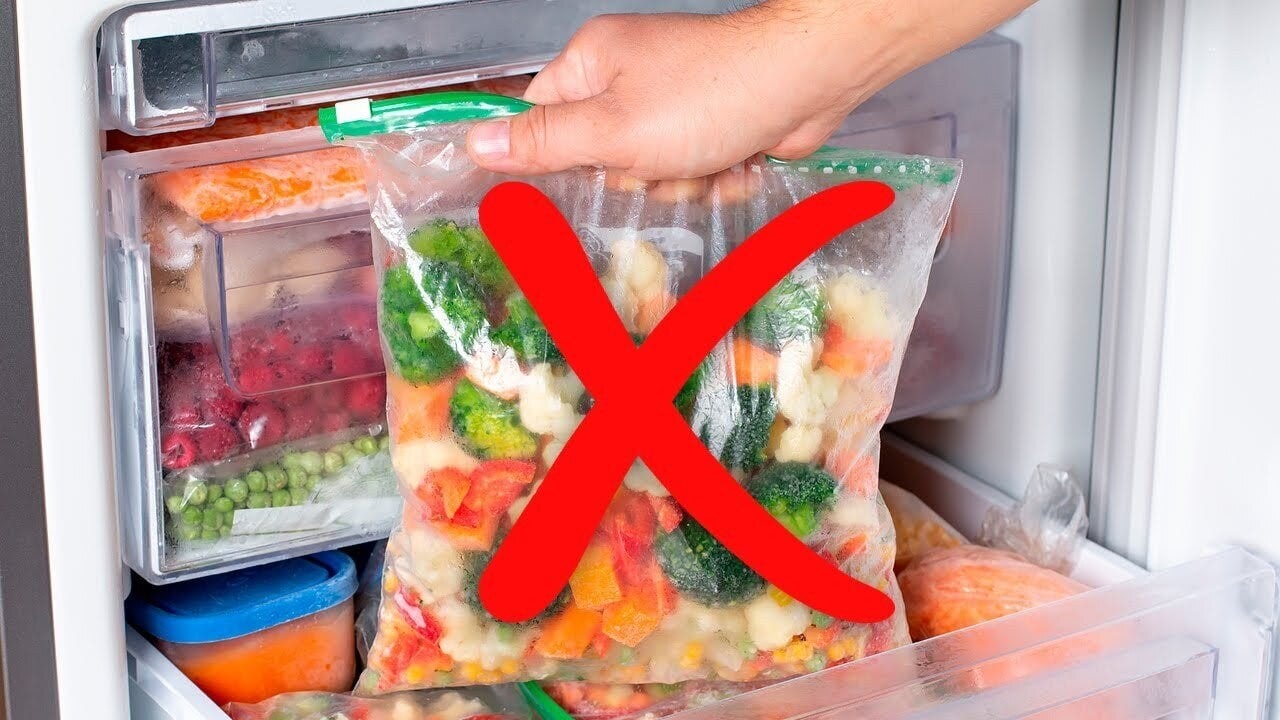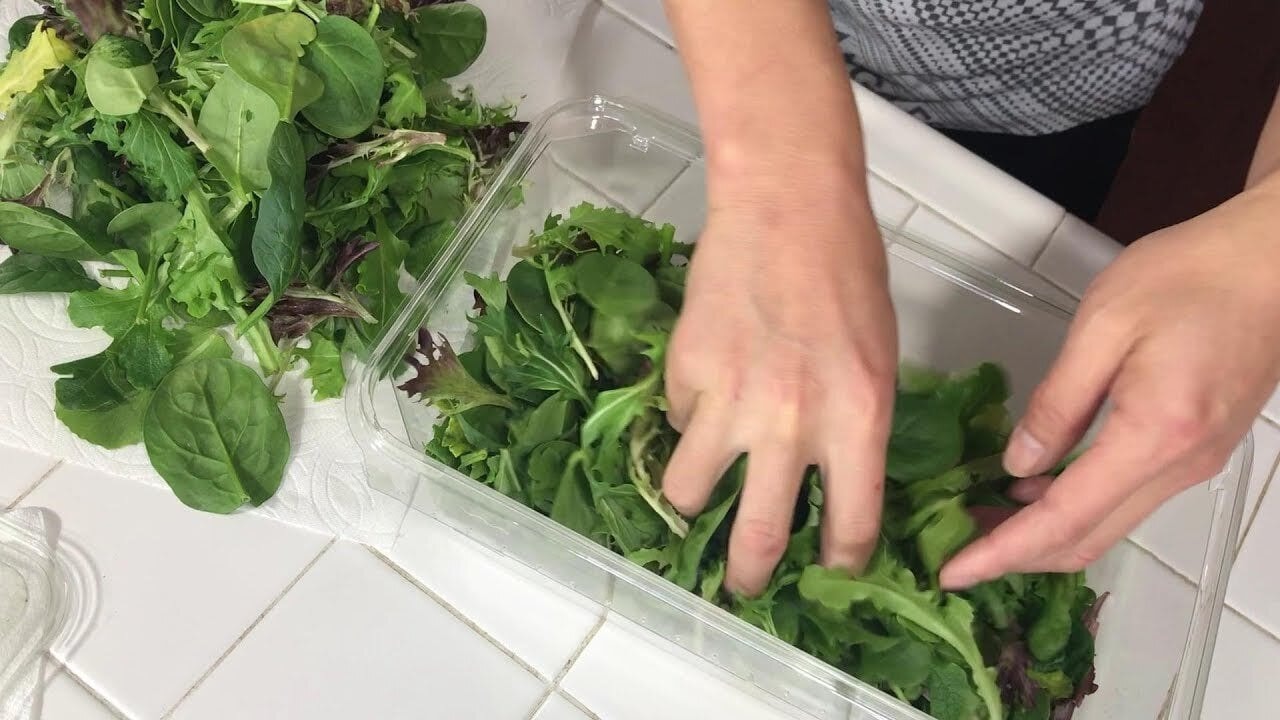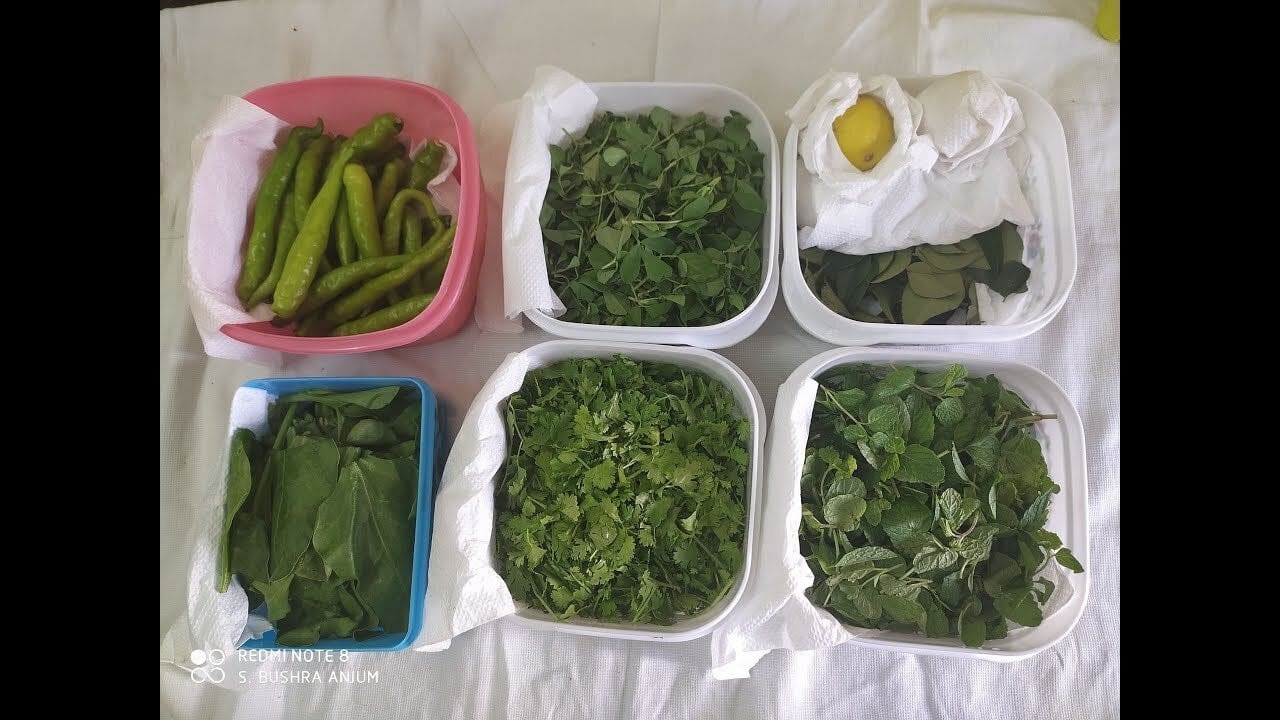After going to the market, many people have the habit of putting vegetables in plastic bags in the refrigerator without knowing that this negatively affects the quality of the vegetables.
Vegetables often have high humidity so they need a well-ventilated space to maintain freshness and limit the growth of bacteria and mold. When vegetables are kept in sealed plastic bags, air cannot circulate, moisture cannot escape, leading to a humid condition, creating conditions for bacteria and mold to grow, vegetables quickly rot and spoil.
You will understand why you should not put vegetables in plastic bags in the refrigerator through the specific analysis of the harmful effects below:

One of the main reasons for not putting plastic bags in the refrigerator is because it reduces the shelf life of vegetables. Moisture accumulated in plastic bags causes vegetables to quickly become soft and rot. This not only wastes food but also affects the quality of family meals.
Most of the popular plastic bags on the market are made of polyethylene. Polyethylene itself is not toxic, but some additives are added during the manufacturing process to improve the flexibility, durability and aesthetics of plastic bags such as plasticizers, stabilizers, colorants... which can migrate into food during contact.
For example, benzopyrene, phthalates… can leach out of plastic bags at high or low temperatures and seep into food. Eating foods containing these toxic substances for a long time will harm the body. That is why we should not put vegetables in plastic bags in the refrigerator.
The moist environment in plastic bags is an ideal place for bacteria and mold to grow, increasing the risk of food poisoning for consumers of vegetables. Furthermore, bacteria and mold can spread to other foods in the refrigerator, affecting the entire food storage space.
Vegetables stored in sealed plastic bags will gradually lose their natural flavor and nutrients. The lack of air and high humidity reduces the nutritional quality of vegetables, making them less delicious and nutritious than they were originally. This explains why vegetables stored in plastic bags should not be put in the refrigerator.
When you get home from the market, remove the plastic bags that your vegetables came in. This will help prevent moisture and allow the vegetables to be exposed to air, keeping them fresher for longer.
Instead of using plastic bags, you can use cloth or paper bags to store vegetables. Cloth and paper bags have the ability to absorb moisture, helping to maintain a dry and airy environment, preventing the growth of bacteria and mold.

Another way to preserve vegetables is to use food containers with ventilation holes. These containers not only help keep vegetables fresh for a long time, but also make them easy to arrange in the refrigerator, saving space and maintaining an ideal storage environment.
Before placing vegetables in the refrigerator, wash them and let them dry thoroughly. This helps remove dirt and bacteria from the surface of the vegetables, reducing the risk of contamination and extending their shelf life.

To control the humidity in your refrigerator, you can place a sheet of paper towel under your vegetables. The paper towel will absorb excess moisture, keeping your vegetables dry and fresh.
Leafy greens like kale, spinach, and amaranth should be stored in cloth bags or airtight food containers. You can also wrap them in damp paper towels before placing them in the container to maintain adequate humidity.
Vegetables such as carrots, radishes, and onions can be stored well in cloth bags or placed directly in the refrigerator. Make sure they are not damp and have good air circulation.
Fruits such as apples, pears, and cucumbers can be stored in airtight food containers or paper bags. For fruits that are susceptible to rot, such as strawberries and grapes, check regularly and remove any damaged fruit to prevent the spread of disease.
VN (according to VTC News)